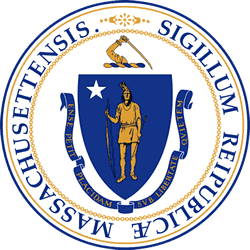While there has been a great deal of excitement surrounding the impending introduction of brick and mortar casinos to the landscape of Massachusetts, this week the state’s top gaming regulator remarked that for now, the focus will remain on land-based casino gambling.
Massachusetts Gaming Commission head Stephen Crosby said that the state would not move forward on regulating any type of Internet betting until operators have been chosen to run the new casinos the state cleared the way for when it passed land-based casino expansion legislation in 2011.
Opening of casinos still a ways off
Though the end of the month, December 31, represents the application deadline for any casino wishing to gain licensing in Massachusetts, Crosby said this week that it will still be years before full-scale casinos in the state throw open their doors to visitors.
The Commission is expected to award licenses in the early part of next year. One slots-only license will be given out in addition to up to three permits to operate full scale Las Vegas-style resorts.
Up to three geographic regions could see the construction of new casinos. The first could open as soon as 2015 or 2016, and until that process moves further down the road, there is little chance that the Bay State will be clearing the way for online wagering, according to Chairman Crosby.
“We also have taken the position that Massachusetts shouldn’t do anything in online gambling until our bricks-and-mortar people are selected because they ought to be at the table when we do this. You can’t expect somebody to give us $85 million and then spend a billion to build a facility and change the rules of the game on them a year or two down the road,” Crosby was quoted by the Milford Daily News.
Massachusetts talked up as being potentially large gambling market
The regulatory process in Massachusetts has garnered its fair share of attention this year, especially being that several big name casinos have been in the running to develop new properties there.
Earlier in the fall, Caesars CEO Gary Loveman, himself a native son of Boston and a Harvard graduate, was talking up Boston as having the potential to become New England’s answer to Las Vegas.
The Caesars chief wasn’t so effusive at the end of October, when routine background checks requested by Massachusetts gaming officials uncovered allegations of criminal ties to one of its investors, the German-born Gansevoort Hotel investor Arik Kislin, causing the company to beat a hasty retreat from plans to develop a new casino in the East Boston neighborhood after the company was informed that the findings would likely render Caesars unsuitable to operate in the state.
Loveman was quick to dismiss state regulators as being too strict, and Caesars quickly announced that it would be dropping its ties to the Gansevoort, a New York hotel with which it had partnered on a Las Vegas redevelopment project that would have seen the former Bill’s Gamblin’ Hall on the Strip remodeled into a version of the trendy boutique property.
Meanwhile, Caesars’ former partner in East Boston, the historic Suffolk Downs racetrack, quickly recovered from the Caesars debacle and a subsequent loss at a public referendum. Having now teamed up with Connecticut-based Mohegan Sun, Suffolk is working to shift its entire plan to property in owns in Revere, Massachusetts, where voters approved its development proposal.

